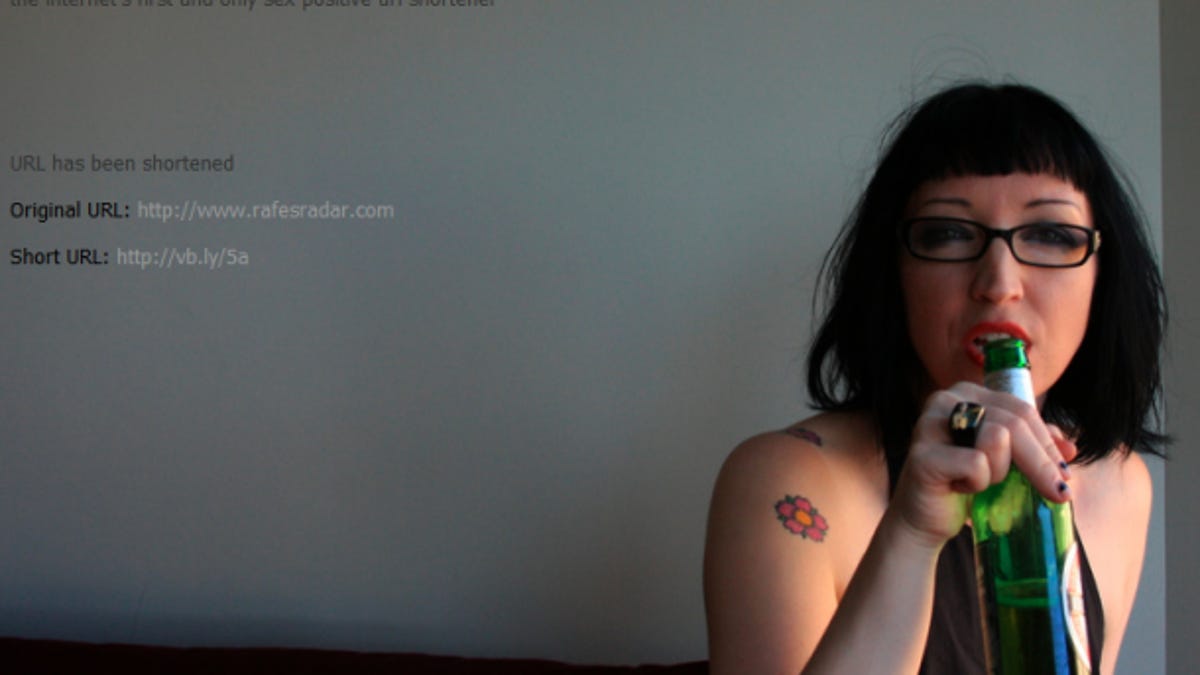Libyan legal issue takes down URL shortener
Vb.ly, an URL shortener that didn't turn away risque Web addresses, falls victim to a judgment that it violated Libyan law. What's that mean for Bit.ly?

What was once "the Internet's first and only sex-positive URL shortener" is no more, thanks to a conflict with Libyan law.
The Vb.ly service combined the initials of blogger and sex columnist Violet Blue and the .ly country-specific Internet domain associated with Libya. The combination didn't work out, an outcome with potential implications for bit.ly, those use it, and address-shortening services in general.
"Pornography and adult material aren't allowed under Libyan Law, therefore we removed the domain," Alaeddin S. ElSharif, a representative of Libya Telecom and Technology's Web services Department, told Violet Blue in explaining the shutdown of the site and service.
The Vb.ly service had a specific purpose--"a place where you can put NSFW links, but it's not exclusively for non-worksafe links...a service which openly states that it won't discriminate against you (by filtering or removing your links) if you do," Blue said a year ago when Vb.ly was launched.
Ben Metcalfe, co-owner of the site, said today the demise of Vb.ly has implications for others using the domain.
"We eventually discovered that the domain has been seized because the content of our Web site, in their opinion, fell outside of Libyan Islamic/Sharia Law," Metcalfe said in a blog post. "This is deeply concerning for everyone, but especially .ly domain owners, because it sets a precedent that all websites running on a .ly domain must comply with Libyan Islamic/Sharia Law in order to maintain their domains. This is especially concerning for anyone running an URL shortener or hosting user-generated content on a .ly domain."
The most obvious such organization is Bit.ly, whose URL-shortening service is widely used.
The company didn't immediately respond to a request for comment. However, ElSharif indicated in his letter that Bit.ly at a minimum has a lot less to worry about than Vb.ly.
"Had your domain merely been an URL shortener for general uses similar to bit.ly (as you claim) there would have been no problem with it. It is when you promote your site being solely for adult uses, or even state that you are 'adult friendly' to promote it that we as a Libyan Registry have an issue," ElSharif told Blue.
Metcalfe sees others as potentially affected, though--not just Bit.ly and its kind, but those who rely on its services as well.
"I believe the .ly domains should be considered unsafe. Anyone running a business or relying on a website with a one-, two- or three-letter .ly domain should be incredibly cautious. This obviously includes anyone who uses bit.ly, 3.ly, owl.ly and any other similar url shortener," he said. "I cannot see how the deletion of our .ly domain couldn't happen to the owners of these domains too. In fact bit.ly is hosting many, many links that depict the Prophet Muhammad (PBUH), extreme pornographic subject matter, etc."
Vb.ly was a redirector, not a domain used to actually host the content. But apparently its home page, an image of Blue with bare arms and shoulders holding a bottle, was a problem. "The issue of offensive imagery is quite subjective, as what I may deem as offensive you might not, but I think you'll agree that a picture of a scandidly [scantily] clad lady with some bottle in her hand isn't exactly what most would consider decent or family friendly at the least," ElSharif said.
URL shorteners in general provide a convenient way to share Web addresses too long for tweets or other space-limited areas. One of the big risks of using them, though, is that the service will suffer outages or disappear altogether so it can't send a person clicking a link to the ultimate destination.
Indeed, that risk of broken links is one reason Google launched its own URL shortener, goo.gl. "Google needed a url shortener for its own products where we knew the shortener wouldn't go away," Google's Matt Cutts said of goo.gl.
Vb.ly's links are broken for now, but Blue promised they'd be back.
"All Vb.ly links still exist but do not function at this time," Blue said. "We have the database intact, and will restore your shortened URLs momentarily with a suitable domain."
Via TechCrunch

